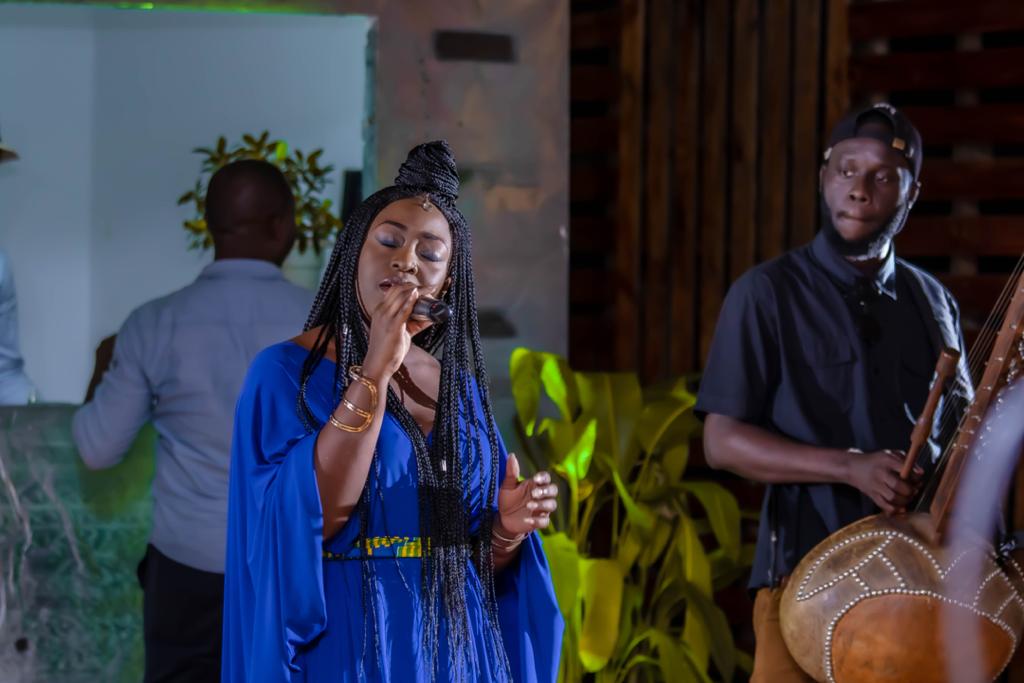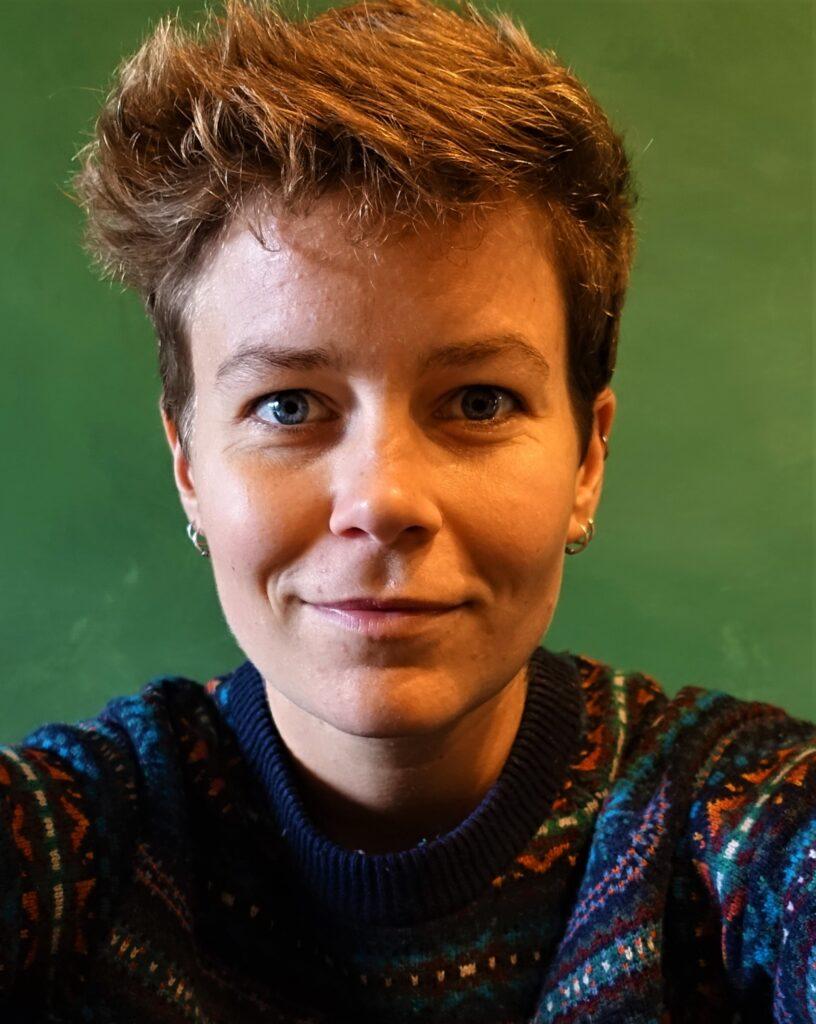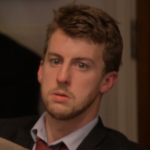
Debating Ideas is a new section that aims to reflect the values and editorial ethos of the African Arguments book series, publishing engaged, often radical, scholarship, original and activist writing from within the African continent and beyond. It will offer debates and engagements, contexts and controversies, and reviews and responses flowing from the African Arguments books.
This is Aminata Bamba, a.k.a. Amee, performing her slam poem Mutilée on stage in October 2020. The poem is an account of a lived experience of genital cutting. Amee appears as an embodiment of the persona in the poem through the use of the lyrical:
Je me souviens de ce rang de petites filles qui avaient le même âge que moi
Je me souviens qu’aucune de nous n’a eu le choix
De fuir ou refuser d’accomplir ce farfelu devoir
[I remember that row of little girls who were the same age as me
I remember that none of us had the choice
To run away or to refuse to perform this absurd duty]
With her performance, she creates the conditions to question practices of genital cutting:
Et puis un jour j’apprends que l’opération chirurgicale
Que la coutume m’a imposé a plus créé que réparé un mal
J’apprends que ce n’est pas moi la femme normale
Et que leur pratique n’a aucune référence dans les saintes annales
[And then one day I learn that the surgery
That the custom imposed on me has created more than repaired an ill
I learn that I am not the normal woman
And that their practice has no reference in the holy annals]
In international activism considerable attention is paid to genital cutting, as organisations seek to combat female genital mutilation (FGM), the prevailing term in activist discourse. Amee is partly immersed in this activist environment, performing at times during NGO events and campaigns.
Such organisations offer Amee a platform and the means to speak about topics dear to her, as she and other slam poets are welcome guests in NGO circles. She does not, however, write on behalf of those NGOs: ‘je n’écris pas sous contrainte, je fais ce que je ressens’ [I do not write under pressure, I do what I feel like doing]. She puts into words the experiences of women, some of whom are close to her, and opens the discussion with the audience: ‘c’est comme si on entamait une conversation avec les gens. C’est un échange, parce que quand on transmet, des mots, et aussi des émotions, ils ont le temps de pousser la réflexion. Et après on peut échanger sur ce qui a été dit’ [It’s like starting a conversation with people. It’s an exchange, because when you transmit words and emotions, they have time to think about it. And afterwards we can discuss what has been said].
Slam has liberated poetry from the page and the select audience of an intellectual elite, and it has had a significant impact on Amee as a person. ‘Depuis que je fais du slam, ça m’a liberée, ça m’a apprise a être ouverte, à parler de beaucoup de choses, ouvertement, sans problèmes’ [Since I do slam poetry, it has liberated me, it has taught me to be open, to speak openly about a lot of things, without problems]. As such, slam poetry enables her to address topics that she would otherwise not dare to speak about. Slam poetry mediates between the speakers and their audience, as the qualities of indirection and metaphoric language inherent to poetry allow for issues to be raised that otherwise remain unspoken – or only discussed with peers or close friends.
Commenting on her position in society, and the possibility of women like her to speak up, she said: ‘it is difficult for women to take the floor. We receive a lot of scrutiny. We live in societies where it is good if women do not assert themselves too much’. She spoke these words during a conversation between female slam poets at the annual International Slam Festival in N’Djamena, Chad, in November 2019. Titled Slam et Eve: le slam au féminin, the 2019 edition of the festival was entirely dedicated to women. One night during this festival, my colleague Mirjam de Bruijn and I spent the evening chatting in the hotel room of one of the participants with the five slam poets from Chad, Congo-Brazzaville, Guinea, Côte d’Ivoire and Morocco who were present at the festival. As they took turns explaining how they got involved in slam poetry, it quickly appeared that sexual violence was a core motivation for their work. One by one, they shared their experiences of sexual violence in their own lives and retold stories from close friends. While the women had been introduced to slam poetry in different ways, very often friends and mentors had encouraged them to begin performing on stage the poetry that they were already writing for themselves. As such, slam allowed them to overcome some of their personal traumas and give words and voice to the experiences of others.
Amee first encountered slam poetry in 2010 when a friend made her listen to the work of Grand Corps Malade and Abd al Malik, two French slam poets. She quickly developed in the art of slam: in 2013 she was named one of the ten best slam poets in Côte d’Ivoire, and in 2014 she became one of the founding members of the Abidjan slam poetry collective Au nom du Slam. Since then, she has performed at numerous festivals in West and Central Africa, as well as in Belgium and the Netherlands. In December 2020, she was nominated for the prize for best female artist of the African Talent Awards.

Amee performing at the annual International Slam Festival
Amee is one of the most famous slam poets in the quickly growing scene of slam poetry in francophone Africa. The conversation I held with her for this blog, is part of an ongoing research project on the recent development of the slam poetry movement in francophone Africa. Introduced to the slam scene by the Chadian slam poet Croquemort, Mirjam de Bruijn and I are currently writing an article on women in slam poetry in francophone Africa (forthcoming in Africa) as well as a book featuring the stories of twelve slam poets in the region. Women like Amee take central roles in this movement. As one of the first professional female slam poets in francophone Africa, she has inspired numerous young women to do slam poetry. Listening to the words of Amee helps us to understand the role of slam poetry in engendering societal debates in urban, francophone Africa.
What is slam poetry?
At the nexus of literary and urban popular cultures, slam poetry is a relatively novel art form that is quickly gaining popularity in Africa. Slam poetry first emerged in the 1980s in Chicago, with Marc Kelly Smith organising performance poetry sessions in Jazz clubs in 1984 to bring back poetry to the people by making performance key in the poetic experience. The genre quickly spread all over the world. In Africa, the first slams were recorded in the first decade of this century, and festivals and national competitions soon followed after 2010. Slam poetry has developed in intimate spaces like bars, restaurants, and libraries, providing a niche space and community for poets from all levels of experience. Slam poetry events often include open mic sessions, which allow amateur poets from the audience to come on stage and perform. In Africa, slam poetry is increasingly part of urban cultures festivals, with more and more festivals being organised around it.
Like other art forms, slam poetry is very diverse but a few elements distinguish it from other forms of poetry and from rap and hip-hop music. In contrast to other poetry, slam poetry is characterised by its poetry, performance, elements of competition, audience interaction, and a sense of community. It explicitly foregrounds the effect of the performance of a poem on an audience. Achieved through a combination of words, tone, rhythm, rhyme, timbre, appearance and attitude of the poet, slam performances thereby seek to challenge the audience’s thinking. Research on slam poetry has pointed to its connection to rap and hip-hop cultures through its focus on identity performance and desire for social change. Positioning themselves in urban cultures alongside rap and hip-hop – slam poetry nevertheless has a decidedly more egalitarian nature – female poets have been central to the scene since its emergence. In the francophone West African slam poetry scene, a focus on social change is strong because the mostly young slam poets find in slam poetry the much needed opportunity to voice their socio-political concerns.
‘C’est une écriture poétique. Tu peux dire à quelqu’un ‘imbécile’, mais dans un texte de poésie tu le diras d’une autre manière. On parle avec des images. Les images ont tendance à créer un déclic dans l’imagination de la personne qui écoute. On n’est pas frontal. Je ne viens pas dire: l’excision est une mauvaise chose. Je viens parler comme une femme qui a été excisée.’ [It’s poetic writing. You can say to someone ‘idiot’, but in a piece of poetry you say it in a different way. We speak with images. Images tend to trigger the listener’s imagination. We are not direct. I don’t come to say: genital cutting is a bad thing. I come to speak as a woman who has been cut].
For Amee, slam poetry is part of a general tendency in society towards more openness to denounce sexual and gender-based violence. ‘We see that women no longer allow their lives to be dictated.’
When it is too hot, it will rain
Consequently, for Amee, slam poetry is inherently responsive. She reacts to what happens in society, and particularly to events that touch her personally. ‘When it is too hot, it will rain. That is a normal reaction for me.’ As she is easily touched by anything that concerns women’s wellbeing, she writes a lot about women. Her texts are ‘an opinion about a topic. When you hear about a girl who is a victim of rape, you want to talk. And my way of talking is through slam poetry. It’s an emotion that we put in writing.’ Talking about rape, sexual violence, or the topic of the slam that Amee presents in this blog, genital mutilation, is not evident or widespread:
‘If we don’t speak about it, it doesn’t exist … when we speak, when we say something, we bring something to light … there are people who read, but it’s not the majority of the population. So, as much as a journalist can write about a certain event, I make a video and I slam. Je slam pour faire exister les choses [I slam to bring things into existence].’
Yet, Amee’s work is not a priori activist: ‘I do what inspires me. I reproduce whatever touches me. I have not decided to be socially engaged. There are things to do, things to say, things to understand, and for me to do slam poetry is to contribute in a way. Because I always think about the future generation. I would have liked to learn about certain things, to be warned about certain things, so that I would be better equipped to defend myself in society.’ One of the things her poetry has thus brought into existence is female genital mutilation.[1]
As a child she would spend her holidays with extended family back home in their village in the north of Côte d’Ivoire. During one of those holidays, she observed a celebration in their neighbourhood. Her uncle told her and her cousins to stay away from the ceremony, or else they would risk being circumcised. It was her first encounter with the practice. Her parents, who had raised her in town, had never spoken about it. Years later in Abidjan, a close friend shared how she had been circumcised, and other stories from friends followed. She was triggered by this topic, which seemed so shrouded in silence apart from the revealing moments such as those described above and conversations with close friends. It pushed her to begin writing the text Mutilée, seven or eight years ago, which she worked on in phases. As she learned more about the practice, she added to and adjusted her text. Actively searching for information in books and documentary films, she was shocked to learn about the different degrees of mutilation. Specifically infibulation (i.e. ‘sewing up’ of the vulva that only leaves space for urine and menstrual fluids to leave the body) had deeply repulsed Amee. In the interview excerpt below, she explains a bit more on how she got to writing the text Mutilée.
Loes interviews Amee on the meaning behind the text of ‘Mutilée‘
Amee’s wish to have learnt more in her youth in order to be better able to speak up for herself and women in general reveals her vision of the spoken word to ‘make things exist’ and unveil issues that otherwise remain unspoken of. The metaphoric, poetic language of slam is conducive to the ability to address delicate topics. It is, however, not self-evident that women like Amee take up the microphone. The power of Amee’s work is perhaps not principally its (written) words, but its actual performance. If it is uncommon for women to speak up in public, doing this regardless is the radical potential of slam poetry.
End Note
[1]This is the term Amee uses for different forms of genital cutting.

Amee (Aminata Bamba) is a pluri-disciplinary artist from Côte d’Ivoire. Trained in law, she works mainly in slam poetry. After having won the RnB concours 3R Révélation in 2009, she became a member of Collectif Au Nom du Slam, of which she is the vice-president and in charge of communications. After a number of performances since 2014, she organised her first concert in 2017 and released her first single Au commencement in September 2019. She has participated in numerous festivals in Africa and Europe. In 2020 she won the Prix Spécial CEDEAO du Slam at MASA (Market of Performance Arts of Abidjan).

Loes Oudenhuijsen is a PhD candidate at the African Studies Center at Leiden University, the Netherlands. She researches historical transformations and continuations in gender norms in Senegal, through a focus on the positioning of sexually dissident women in society. She is involved in the academic-artistic foundationVoice4Thought, currently writing about women and the emergence of a slam poetry movement in Africa.





